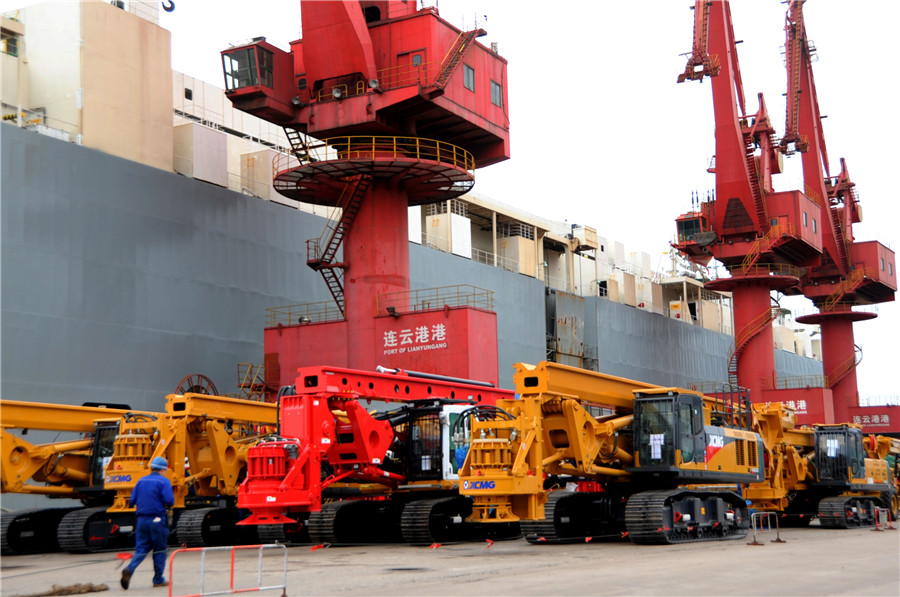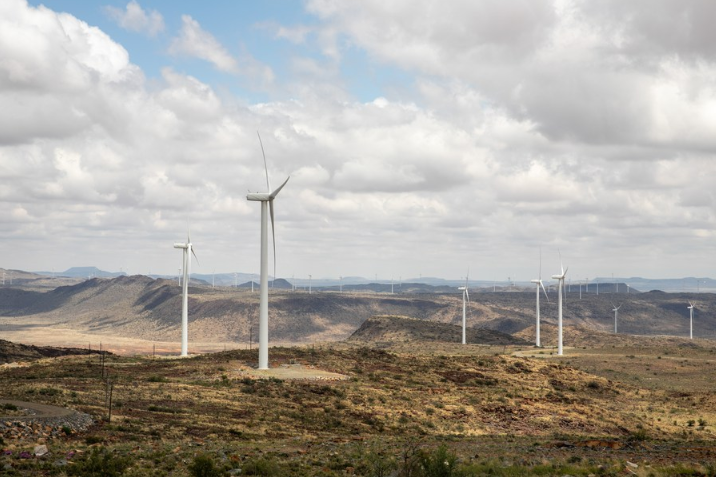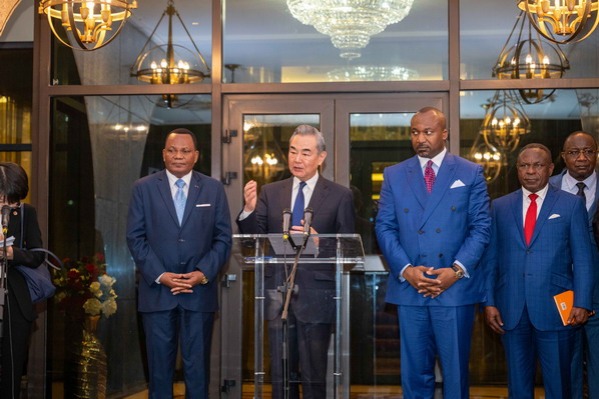Construction machinery firms reap BRI rewards


Overseas projects help offset slowing growth prospects at home
Buoyed by the huge growth potential, construction machinery makers from China are making concerted efforts to cash in on market opportunities arising from the Belt and Road Initiative.
Liu Jiansen, vice-president of Xuzhou Construction Machinery Group, said the company's exports to other economies involved in the BRI accounted for 70 percent of the total shipments.
"In the future, we will take the BRI as a guide, constantly improve the company's overseas layout, and strengthen our international cooperation," Liu said.
"We want the company to have a lead position in the Chinese construction machinery industry," added Liu, who is also the general manager of XCMG's trading unit.
The Xuzhou, Jiangsu province-headquartered XCMG has been focusing on exploring overseas markets through exports, establishing plants abroad, cross-border mergers and acquisitions, global research and development, as well as building a global talent team.
In the African continent, XCMG plays a major role in various construction projects, including energy and mines cooperative exploration, ports, railways, roads and industrial parks.
For example, the construction maker helped construct the Kenya Mombasa-Nairobi Railway, which connects the Kenyan capital of Nairobi and East Africa's largest port Mombasa. It has a total length of 480 kilometers and a design transportation capacity of 25 million metric tons.
XCMG's yearlong endeavor in global expansion has paid off. It has formed a complete service and management system that covers the whole product life cycle. It owns 30 overseas subsidiaries, 40 overseas offices and over 300 foreign distributors across 182 nations and regions.
Eyeing even greater achievements, the construction machinery giant aims to grow into the world's fifth-largest construction machinery manufacturer in 2020, and one of the top three by 2025.
China proposed the BRI in 2013, which consists of the Silk Road Economic Belt and the 21st Century Maritime Silk Road. There is growing evidence, from companies and data, that the initiative has started bearing fruit.
In the first two months of this year, China's nonfinancial outbound direct investment in 48 economies participating in the BRI rose 7 percent year-on-year to $2.3 billion, data from the Ministry of Commerce showed.
Buoyed by the initiative, the construction machinery sector delivered solid growth. A research report on China's construction machinery industry showed that the nation had exported about 19,000 excavators in 2018, almost double that of the previous year. The report cited the BRI as a major driver for the momentum.
Sany Heavy Industry Co Ltd reported overseas sales of 13.63 billion yuan ($2.03 billion) in 2018, up 17.29 percent from a year earlier. The company's performance continued to improve in Southeast Asia and Latin America, it said in its earnings report.
"The company has taken advantage of the overseas business layout, and seized opportunities from the Belt and Road Initiative to advance its global strategy," the report said.
Between 2012 and 2016, the Chinese construction machinery manufacturing sector was confronted with a recession as market demand slipped. After a nearly two-year rapid expansion, the segment's growth started to slow last year.
Experts held cautiously optimistic attitudes toward the industry development in 2019. Yang Shaohui, an analyst with securities firm BOC International (China) Ltd, said the policy adjustment can help underpin the demand of the construction machinery industry, as the government aims to stabilize the infrastructure construction. He estimated excavator sales would remain at a high level this year.
China International Capital Corp, known as CICC, said in a report that the construction machinery sector is projected to remain stable this year, as several measures aimed at stabilizing infrastructure would roll out.
Mechanical equipment's life cycle is roughly between eight and 10 years. The report estimated many owners would replace their old equipment with new machines this year. "The need for excavator replacement would reach 140,000 units," the report said.

































